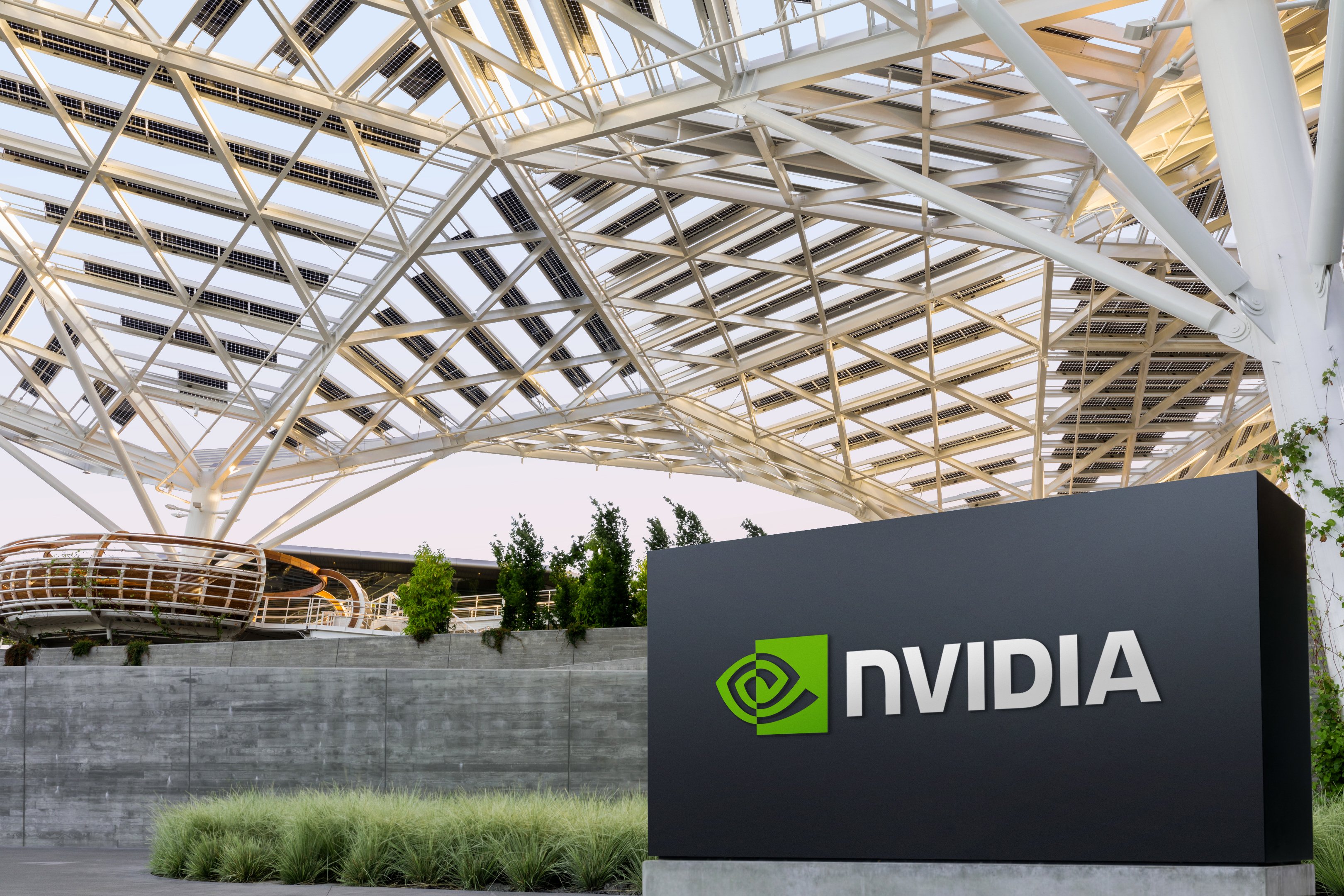Artificial intelligence (AI) has the potential to be the most important technological advancement in history, and it still appears to be in its early innings. As such, the space is still one of the most promising places to invest.
When delving down to specific stocks to focus attention on, five of the best AI-related offerings to buy right now are Nvidia (NVDA 0.72%), Broadcom (AVGO +0.15%), Taiwan Semiconductor Manufacturing (TSM 2.66%), Palantir Technologies (PLTR 3.47%), and GitLab (GTLB 1.47%). Each company has found a unique niche in the AI sector to exploit, and each has big opportunities ahead.
Let's look at why these are among the best AI stocks to invest in right now for the long term.

Image source: Getty Images.
1. Nvidia
Nvidia's graphics processing units (GPUs) have become the backbone of AI infrastructure. These powerful chips are used to help power AI workloads, and demand has been soaring.
The company's wide moat, however, comes from its CUDA software platform. Nvidia launched CUDA two decades ago to allow developers to program its GPUs more easily. It pushed CUDA into universities and research institutions early on, which helped CUDA become the de facto software program for AI developers.

NASDAQ: NVDA
Key Data Points
In Q1, the company had an over 90% market share in the GPU space. As a result, where AI infrastructure spending goes, Nvidia is sure to follow. While a slowdown in data center spending would be a risk, right now, demand for AI chips is only getting bigger. This is being driven by cloud computing companies pouring money into AI infrastructure to keep up with demand; large tech companies and AI start-ups spending big to create new foundational AI models; and even countries making large investments to not fall behind in the AI race.
As AI infrastructure spending continues to ramp up, Nvidia remains a clear winner.
2. Broadcom
Another company taking advantage of the AI infrastructure build-out is Broadcom. Rather than designing GPUs like Nvidia, it's been focused on networking components and helping customers design custom AI chips. It also added a software component when it acquired VMWare.
Thus far, its strategy is paying off. Its Ethernet switches and other networking components help efficiently move data within huge AI clusters, making them an essential part of data center infrastructure. Last quarter, its AI networking revenue soared 70% and accounted for 40% of Broadcom's total AI revenue.
However, Broadcom's biggest long-term opportunity comes from helping customers design custom AI chips, which can offer better performance and lower power consumption than off-the-shelf GPUs. Demand is starting to pick up. Broadcom says its top three custom chip customers are on track to deploy 1 million AI chip clusters each by 2027, representing a total opportunity of between $60 billion to $90 billion.
On the software side, Broadcom also benefits from transitioning VMWare customers from perpetual licenses to a subscription models and upgrading them to its VMware Cloud Foundation (VCF) platform. VCF helps customers build hybrid and multi-cloud environments so they can manage workloads across public clouds and their own on-premises data centers. At the end of last quarter, 87% of its top 10,000 customers had adopted VCF.
While an AI infrastructure spending slowdown is a risk, given its networking leadership, custom AI chip opportunity, and growing software revenue, Broadcom is well-positioned moving forward.
3. Taiwan Semiconductor Manufacturing
While semiconductor companies garner most of the attention from investors, Taiwan Semiconductor Manufacturing is the company that actually manufactures most of these AI chips. It's the clear leader in advanced semiconductor manufacturing and a key partner to top customers like Nvidia, Apple, and Broadcom.
Meanwhile, AI is driving its business. High-performance computing now makes up 59% of its revenue, up from 46% a year ago. Most of that comes from advanced nodes. Nodes refer to the manufacturing process used to make chips.

NYSE: TSM
Key Data Points
The smaller the number (measured in nanometers), the more transistors you can pack onto a chip. This improves a chip's performance and power efficiency, and TSMC is the best in the world at making these at scale. And with rivals struggling to make advanced chips, this has given TSMC strong pricing power, as well.
The biggest risk to TSMC is a slowdown in AI infrastructure spending, which would hit both revenue and fab utilization. However, the company is working closely with its largest customers to build out capacity in lockstep with their demand. With advanced-node capacity tight, TSMC is well-positioned to continue to be an AI infrastructure build-out winner.
4. Palantir Technologies
Palantir Technologies has emerged as a key player in the AI space. Instead of putting resources into developing AI models, the company focuses on the applications and workflow layers of AI to essentially develop an AI operating system. It does this by gathering data from a wide array of sources and organizing it into an ontology that links the data to its real-world counterparts.
As a result, the company's AI Platform (AIP) can help organizations solve complex problems. This includes everything from monitoring sepsis in hospitals to streamlining underwriting processes in insurance. The sheer number of use cases across various industries that AIP can handle is just an enormous opportunity for Palantir moving forward. The company saw its revenue growth consistently accelerate over the past two years, including a 39% increase last quarter.
The stock is not without risks, as it carries a high valuation and is exposed to government budget cuts, since the federal government is still its largest client. However, Palantir is unique in the AI space and has one of the biggest opportunities in front of it.
5. GitLab
GitLab is a leader in the DevSecOps space, offering a platform that helps developers build software securely. It's been an AI winner, as customers expand seats and upgrade to its higher-tier platforms as AI increases the customers' software development. GitLab is also helping customers become more productive with products like GitLab Duo, which uses AI to provide code suggestions and automation to streamline development.

NASDAQ: GTLB
Key Data Points
The company consistently delivered strong revenue growth of between 25% to 40% over the past two years and boasts impressive gross margins and solid free cash flow. It's also done a great job growing within its existing customer base, as evidenced by its 122% dollar-based net retention over the past 12 months. Most of this is coming from seat expansions, followed by strong upgrades to higher-tiered offerings.
While there has been concern that AI will replace coders, right now the opposite has been true, as GitLab's technology is being used to make software developers more productive, not replace them. This is driving strong growth and makes the company look like a solid long-term winner.







